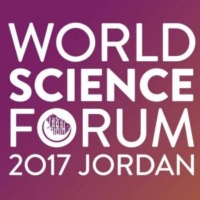
Networks open to the world
Since all COST Actions grow around a common idea or research challenge, academics and scientists from all over the world can get involved, provided that there is a mutual benefit to both European and international participants.
“ Connecting with peers in Europe and beyond helps researchers develop the right skills to build a career in their home countries. This is how we help spread and promote excellence in science ”, added Prof. Dr Cloetingh.
Through the COST Near Neighbour Countries policy, researchers outside Europe can participate in COST Action-run activities, access travel funds and can co-author a proposal for a new COST Action.
Jordan is a COST Near Neighbour Country, alongside Albania, Algeria, Armenia, Azerbaijan, Belarus, Egypt, Georgia, Jordan, Lebanon, Libya, Moldova, Morocco, the Palestinian Authority, Russia, Syria, Tunisia and Ukraine. In July 2017, researchers from 243 academic institutions across all COST Near Neighbour Countries participated in highly interdisciplinary COST Actions.
What is more, researchers from International Partner Countries can also take part in existing COST Actions.
Empowering young researchers, fighting for gender balance in science
The short-term scientific visits and training schools organised as part of COST Actions offer young researchers the chance to stand out, lead projects and share their ideas with leading international research communities. In addition, there is a perfect gender balance among the younger researchers in COST Actions (26-30 y.o.)
“ Joining in or setting up one’s own COST research network can make a huge difference in a researcher’s career, especially when they are just starting out in the research world ”, Prof. Dr Cloetingh explained.
The 2017 World Science Forum edition, “Science for Peace”, attracted 3000 participants from over 100 countries. The biennial event gathers leading scientists, decision-makers from the world of politics, industry, representatives of the civil society and the media from all over the world, who express their views on the new challenges science is facing in the 21st century.
